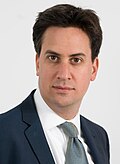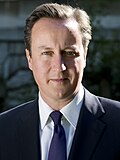3 May 2012 | ||||||||||||||||||||||||||||||||||||||||||||||||||||||||||||||||||||||||||||
All 36 metropolitan boroughs, 18 out of 55 unitary authorities, 74 out of 201 district councils, all 32 Scottish council areas, 21 out of 22 Welsh principal councils, and 3 directly elected mayors | ||||||||||||||||||||||||||||||||||||||||||||||||||||||||||||||||||||||||||||
|---|---|---|---|---|---|---|---|---|---|---|---|---|---|---|---|---|---|---|---|---|---|---|---|---|---|---|---|---|---|---|---|---|---|---|---|---|---|---|---|---|---|---|---|---|---|---|---|---|---|---|---|---|---|---|---|---|---|---|---|---|---|---|---|---|---|---|---|---|---|---|---|---|---|---|---|---|
| ||||||||||||||||||||||||||||||||||||||||||||||||||||||||||||||||||||||||||||
 Colours denote the winning party, as shown in the main table of results. | ||||||||||||||||||||||||||||||||||||||||||||||||||||||||||||||||||||||||||||
The 2012 United Kingdom local elections were held across England, Scotland and Wales on 3 May 2012. [1] Elections were held in 128 English local authorities, [2] all 32 Scottish local authorities and 21 of the 22 Welsh unitary authorities, alongside three mayoral elections including the London mayoralty and the London Assembly. Referendums were also held in 11 English cities to determine whether or not to introduce directly elected mayors. [3]
Contents
- Electoral process
- Results
- Overall results - Great Britain
- England
- Metropolitan boroughs
- Unitary authorities
- District councils
- Mayoral elections
- Mayoral referendums
- Scotland
- Wales
- See also
- References
The BBC's projected national vote share put Labour on 38%, the Conservatives on 31%, the Liberal Democrats on 16% and others on 15%. [4] Rallings and Thrasher of Plymouth University estimated 39% for Labour, 33% for the Conservatives, 15% for the Liberal Democrats, and 13% for others. [5]
The inaugural election of police and crime commissioners for 41 of the 43 territorial police forces in England and Wales took place separately, in November 2012.








